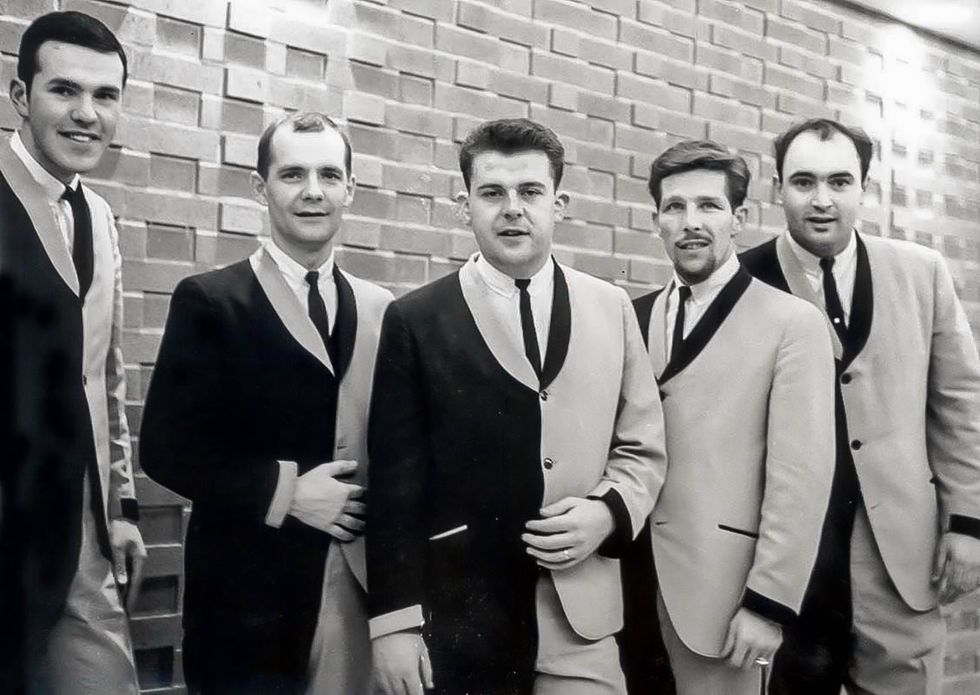Tom Wilson – I Am Tommy
For decades, he was one of Toronto's premier talent agents. He has now written a memoir that is a fascinating portrait of the halcyon days of the city's bar scene.

By Bill King
They say of a writer, write about what you know. Tom Wilson knows the Ontario music industry from the bowels of the “big smoke,” a term that so mischaracterized our beloved big city of Toronto from the 50s’ on, which today in no way resembles it’s “put upon” past. The bar scene is all but a relic of a bygone era. The most sought-after bands have “age-faded” - some victims of that poorly conceived epitaph – “live large and die young.” Who the hell wants to die young?
Toronto rock musicians begged for a beginning and for anyone to step up - spread the word and pull in the paying gigs. Tom Wilson stood on the front lines and, as one sharp-dressed teenager, used his street wits, common sense and inner drive to work his way into the first tier of Toronto booking agents. I Am Tommy recounts the times good and bad, and recalls the rhythmic beat of a city staggering along with “hitter” bars, barren storefronts along Yonge Street, and a nightlife lived out of view of the watchful eye of “Toronto’s Cops Are Tops." Tom and I recently sat down for a chat.
Bill King: The memoir took a fair bit of time to put together.
Tom Wilson: That is a good point because it’s your fault it took longer than it should have. Go back to the first interview I did with you because I first wrote about the music business, but you kept plugging away at me saying, “what about your personal life – didn’t you have a personal life?” You went on and on, and I said, 'the hell with it,' and I went back and rewrote it, and it took about eight months to do, and I put in the personal stuff.
Are you blaming me?
No, I’m thanking you. It made all the difference in the world in the book. It made it human.
I’m always interested in music-related books yet too many people write from the outside and are fearful of exposing anything of themselves, yet the story is really about being there – that’s what we want to know about.
My book was just a technical book before. I was going to call you and say, “listen Bill, you want to manage me?”
I don’t even want to manage myself! What was the starting point for the book?
I was born. Right at the beginning. Downtown Toronto, Harbord and Bathurst.
Chasing girls from what I hear?
I was keeping a chart. If you saw pictures of me when I was younger, I was a good-looking dude. I say it openly in the book. I just took advantage of that. I was hanging out as a groupie with the Consuls (Little Caesar and the Consuls) - I even got that overflow. I’d say to them, who do you want to go see? I’ve got a backstage pass.
Who booked the Consuls?
They booked themselves from 1957- 1959. I didn’t get into the band until 1959 or 1960. Ron Scribner, who became my partner, picked the Consuls up in 1958. When I joined him for an astounding $30 a week, he had Ritchie Knight & the Midnights and now he had the Consuls. I took over booking the Consuls because I was with the band and that way, I got to meet everybody. It made my career that much easier as far as booking bands. Then we picked up more, and more, and more.
How did you develop your negotiating skills?
Just sales, especially with Caesar and the Midnights. Put them on stage – sold!
There was a time you could put about any band on stage, and the room would fill up.
Plus, Caesar and the Midnights were the hottest bands in town. It was so easy. You get the two in and bring the rest in behind them and the next thing you know, you are doing all the dates at the place.
Did you dance?
I was a good dancer.
That’s a big issue. You had a serious advantage over me. I was a stationary object. I imagine Tommy does his full routine on stage and come break time walks off stage and makes a move.
Absolutely. I was active on stage. I was doing flips, jumping around like a fool, and it worked.
The book? Is this written chronologically?
It starts from when I was born in 1939 and stops at 1980. That was the most exciting time in the business. The '50s, '60s, 70s’ and early '80s. I could have written for another five years with the stories I didn’t tell. This is going from rhythm & blues and rock n’ roll blending, the British invasion, and then the heavy metal guys got into it. My God, it was an eclectic mix of music. You could go anywhere and see anything you wanted.
It was also the time of backing bands. When those one-off hitmakers came to a town and if a local band was sharp and on top of things, they got the big gigs.
Me being the agent of Little Caesar, I made sure they got every show that came in I could. Because Ron and I were bringing in some of the American acts like Danny & the Juniors, - I’m sure we backed them up at Mission Call, the R&B place to go, where we backed up many of the singing groups – the black singing groups and fabulous singers. That’s where we stole our big hit “Sloopy,” from a group called the Vibrations. They were amazing. We never read music per se; we just memorized it. Hum it, and we’d get it.
That was the way music was transmitted in rehearsal and on the bandstand. An excellent example: Ray Charles would hear the horns parts in his head - sing them to the alto sax, trumpet players, trombones and run through time and timeagain until everybody had memorized.
What was the spark that ignited the writing process? Were you in competition with Richard Flohil to see who could make it to the finish line first?
It had nothing to do with music or anybody. I also worked as a real estate agent for Royal LePage, and my broker was a lady named Vivian Risi. She was a grandmother and knock down gorgeous, really smart and had twelve offices and ran it all herself. We talked a lot and got to be terrific friends, and she says to me, “Tommy, why don’t you write a book?” I said to her, “why don’t you write a book, you’ve done amazing things – a grandmother, a successful entrepreneur.” I said, “yep, I’ll write a book, but you have to write one too.” Hers is coming out in a few months.
Do people keep asking whatever happened to agent Terry Fillion?
We were partners, and he had a deal at a hotel with a spa and another partner and all I know, it’s in the book, there was some kind of fraud deal that went down, - a scam, and the next thing I know, he’s gone. I heard he went to Detroit, but I could never find him. That was when the business was starting to hit the big time financially as well as name wise. It was 1972 or 1971 when he split. I heard he was back in town in 75’.
We’re driving across America, and syndicated conservative radio man Paul Harvey pops up with one of his shorts – “the best story” thing and says – “Terry Fillion of Markham, Ontario” and I’m like, turn up the dial. The piece goes on to say something about Ralph Cole of Déjà vu - he saw a ghost in the headboard of a bed or something of utter strangeness, and my head hit the steering wheel. I looked over at Kristine, and we laughed our asses off. Terry managed my band Homestead during some insanity at your agency.
He was always twenty-four seven trying to make a deal.
He did keep us out there with Homestead.
We all did. By then there were five or six agents. If you worked with the company, the company took care of the bands.
You guys handled rock around the city, Bud Matton the show lounge stuff.
Bill O’Conner. Harold Kudlets was the big one for the bars. Everybody had their little niche they sat in. The other agents who were around longer than me were so helpful. They would tell you anything because they were solid in their positions and didn’t care.
Did this become lucrative for you?
Very.
I was on the other side of this and it wasn’t working out as well.
That’s because I took so much money.
Give me a great story from the book.
It’s in there because of you – the personal stuff because we had the chicken audit. My family used to go to my uncle’s farm for the summer and my brother, and I would stay for sometimes a week or just the weekend and my father was an alcoholic big time. He decided in his stupor to stop into a general store in Simcoe, which is like a farming community and bought a hundred of those little yellow chickens. Piled them in the car with us, drove to my uncle’s farm and dad had his brother put the chickens in the living room and let them go to keep them warm. My uncle built a chicken coop, and my father would get drunk and get a chair and sit in front of the coop and have the chickens mill past him so he could count them. My uncle was not a rich man, very poor in all seriousness and they’d eat a chicken. You’d think the old man would get hip, but the guys were very bright. They would pass all the chickens past the old man so he could count them then run them around behind the chicken coup and bring them back through again and double up on the count. He thought the flock was growing like crazy. They kept that going a couple of years.
When I met my last wife, the one I was so much in love with, I asked her to write how she felt when we first met, and I’d put it in the book. She did, and I did.
Are you still paying off the other wives?
No, everybody’s paid now, and I’ve got two grandkids – even better.
Did you ever have to do a band intervention?
Well, the Mission Call was always good for a fight. You’d have Ronnie Hawkins on stage, and some idiot would climb up and get in Ronnie’s face and “boom” it was over.


















